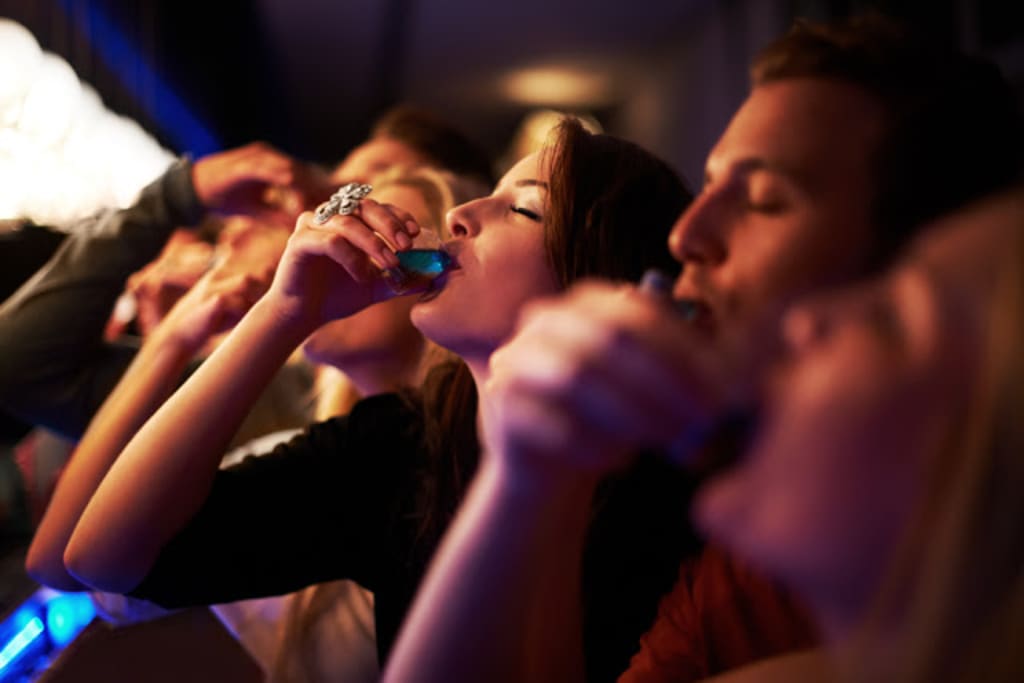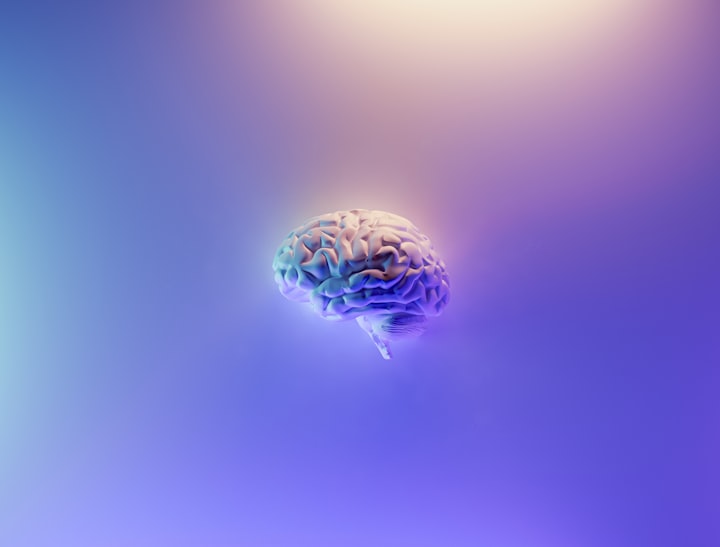A Cocktail of Alcohol and Depression—What Are the Consequences?
Depression, Alcohol, the Brain, and Dependencies

So let's take a moment to talk about alcohol. Being smashed. Getting wellied. And what a more appropriate time to do it than when I'm still intoxicated at 8:07 AM, from the night before.
Alcohol is a centrical component of most social situations in today's world. At parties, meetings, dinners—it will be there. Whether it is an Irish coffee, a jäger bomb, or a trying-to-be-sophisticated four bottles of red, there will be something for the occasion. For every person, the effects of alcohol can vary, but with outcomes which can leave people permanently hooked, disinterested, or simply scarred for life with a long list of regrets. Going through a period of depression will inevitably effect what happens when you drink, why you drink, and how. It's important to make yourself aware, and well-informed of the risks and possible benefits of booze. (This is coming from a girl whose life is in shambles, so she drinks like she's been lost in a desert for nine years and just dug up a keg.)
So, let's think about how we get drunk, and what is actually going on in our bodies when we inhale shots like there is no tomorrow before we focus it directly on the effects—specifically displayed when we are depressed.
When you begin to feel drunk, it is the body's inability to break down the alcohol as fast as you drink it kicking in. Approximately 20 percent of the alcohol consumed is absorbed through the stomach, and then the rest is absorbed through the small intestines, into the bloodstream. When it is in the blood, this is when it begins to effect us, while the body is still working to break it down. Your (probably slowly disintegrating) liver breaks it down into acetic acid, and the kidneys do their part, too. Along with the lungs; they can get rid of approximately 10 percent of the alcohol in our system. It's when the liver can't keep up with the generosity of our irresponsible drinking buddies that we begin to experience feelings of drunkenness.
So, the vodka you drank raw from the bottle to look hard in front of your mates has driven you to making out with a beer bottle. Why? To seduce the guy you've been creeping out all night from the corner of the room. Now, the painful question that comes the morning after: Where did it all begin? With the booze in your thick noggin. Alcohol screws around with the levels of neurotransmitters in the brain—chemical messengers that control thought processes, emotion, and behaviour. These little guys are either excitatory (stimulating brain electrical activity) or inhibitory (decreasing brain electrical activity.) Alcohol increases the effects of the neurotransmitter GABA (Gamma-Aminobutyric acid) in the brain. GABA, in its regular quantities, helps induce relaxation and sleep, inhibiting over-excitation, and contributes to motor control and many other cortical functions. It regulates anxiety, hence it is often a factor altered through use of medication for some sufferers of the mental illness. When it's boosted with a bottle of Bacardi, you get the sleepy, sluggish, and slurred effects. On the flipside of the coin, you have glutamate, the excitatory neurotransmitter. This plays a part in memory, cognition, and learning. By suppressing this stimulant, it draws parallels to the previous physiological breakdown of GABA. On top of all this, alcohol elevates dopamine levels in the brains reward centre, stimulating feelings of pleasure and reward when taking a drink. This, is a very big factor in the attraction of alcohol, particularly to a person suffering from depression, as they can lack this endorphin.
Continuing on—with depression, the sufferer will have fewer serotonin and opioid receptors, and it often shows itself to lack more dramatically when the depression is increasingly severe. With light alcohol consumption, the release of opioid peptides are stimulated in brain regions that make you feel good, reinforcing the effects of alcohol through a sense of reward. On the flip side, chronic alcohol consumption can bring on a central opioid deficiency, which feels a lot like withdrawal. This starts the downwards spiral of knocking a few (too many) back as the brain develops a dependency through the process of negative reinforcement.
Serotonin is a hormone contributing feelings of happiness, as well as regulating mood, appetite, and sleep. Additionally, there are some cognitive functions involved, from memory to learning. This is also a common hormone, which is proven to be deficient within sufferers of mental illness, like depression. Studies have shown clearly that with people who consume more alcohol, their levels of serotonin have decreased, which often leads them into depression and even alcoholism.
Serotonin levels are normally increased through medication during recovery in order to help a person out of an alcohol addiction. These findings support the fact that alcohol is a depressant, and in both immediate and the long term, can have very negative consequences on a person, even more so to a person suffering from depression. As with the opioid receptors, serotonin levels may spike during initial drinking, and thus it forms a subconscious hope that to continue will resolve the suffering we may be trying to ease. Unfortunately, it's all downhill from here, folks, between the duck-in-distress twerking, slut drops, and heads down the toilet. Leave the Buckfast alone.
Those taking serotonin medication should be particularly aware of the severe risk in having huge imbalances in hormones affecting their mental stability. Being on such medication while drinking can lead to breakdowns, suicide/attempts, or other very challenging and unsafe situations for you and the people around you.
So folks, I'm sorry to report (in a now sober and reflective state) that alcohol is in fact a depressant, even if the first drink or two feel pretty good. Even then, you are beginning to knock your happy hormones out of whack and set yourself up for more than just a face plant due to physical imbalance. A few more drinks on and you're going to feel worse than you began. Perhaps not immediately, perhaps not every time you drink, but slowly, the effects will cause more and more damage. Mentally, and physically, it takes its toll. I hate to be a party pooper, but it's probably time to slow down on the tequila.
Well, this was probably a drastically hypocritical article, due to the fact that, if I was breathalysed while writing the first half of it, I would probably have been hospitalised. However, after picking up where I left off writing this article some months later, I have genuinely found myself very changed. I had been struggling with depression and had fallen into a strong dependency on drink. Parties on weekends and weekdays. Alcohol in the evenings to sunrise the next day. I couldn't stop. The reason being: I always promised myself that I would stop at one or two—that I would know my limits. Instead, I was giving my receptors and hormones just enough of a buzz to get them up and dancing after a miserable week. After that, nothing and no one was going to be able to rip the bottle of raw gin from my hand. I began to feel worse and worse... and completely out of control. I had no discipline and was falling deeper into depression—all because of the one thing that I felt was momentarily saving me. Sometimes the slope down doesn't seem so steep until you're at the bottom. Then, you realise you've a heck of a long way back up to climb.
So, be careful and think it through. Drink wisely (which for some may be not at all), and look after yourself and your mental health.
If you found this article useful, whether you learned something or simply just laughed at my general rickety shambles of a lifestyle, I greatly appreciate the support given in order to continue my writing. To see other pieces of my work, you can also follow me on Instagram @rebekah_sanyu.
All the best, my booze loving babes.
Becky.






Comments
There are no comments for this story
Be the first to respond and start the conversation.